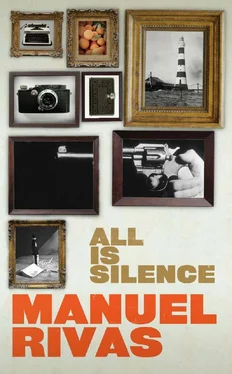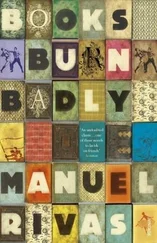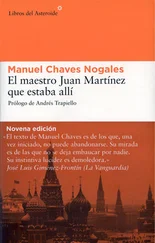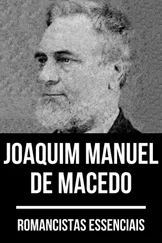Their looks seek out Óscar Mendoza and quickly find him on account of the spotless suit and refined bearing which contrast with the sheepskin coats and leather jackets.
‘Humour’s good for business. There’s lots of bitterness and what money wants is joy. Money’s like people!’
He turns his attention back to the billiard table. Changes expression. He has a collection of faces, which he puts to good use. Thoughtful. Serious.
‘Go on then, Carburo!’
To everyone’s surprise, Carburo pulls back the green felt from one corner and quickly rolls it up to reveal a large map of Europe. Maritime coordinates in the Mediterranean and Atlantic are marked with a red cross where a second assistant, Inverno, deposits billiard balls.
Mariscal follows the operation carefully, with an enigmatic half-smile, and when his subordinate has finished, he uses the cue as a pointer, gently stroking the balls as he reveals the crux of his discourse.
‘Gentlemen, look. There are twenty-five mammas loaded with tobacco along the coasts of Europe. Most are in the Mediterranean. Near Greece, Italy, Sicily and in those parts. There are also several in the Adriatic, next to the communist countries. They enjoy a bit of vice just as much as we do!’
He pauses for effect, remaining thoughtful and serious while the others laugh at his joke. Then he makes another movement with the cue, which is like wielding a baton. And heads westwards in the middle of absolute silence.
‘Where are we?’
He suddenly bangs the table with the cue.
‘Right here! North-west quarter west. Sensu stricto .’
Everyone gazes at their home. The surprise that comes from viewing where you live from the outside.
‘If we head further south, just a little bit, we come to the part that interests us. A mamma . Our very own mamma . Right here, very close, in northern Portugal. Of course it’s not our mamma in the sense of ownership. We’ve been suckling until recently on Delmiro Oliveira’s. Now Mr Oliveira is a man with a sense of humour. I said to him, “Listen, Delmiro, do you know what a Galician hates most of all?” And he replied, “No, I don’t.” And I said, “What a Galician hates most of all is being subservient to someone from Portugal.”’
The border joke is accompanied by smiles. But they remain silent. Watchful.
‘You see? He laughed as well. Because he’s a skilled businessman. And has a sense of humour. He understood. And said, “I don’t have servants, Mariscal. I have partners. What’s more,” he continued, “I’ve no desire to be a Midas, a shit who feeds on other people’s leftovers.” Now that Delmiro guy is smart.’
Mariscal lifts his head with satisfaction and surveys the room.
‘What made Delmiro Oliveira understand? What made them understand in Antwerp and Switzerland? They understood that we have something. We have the best arguments for business. An amazing, endless coastline full of nooks and crannies. A secret sea which keeps us safe. And we’re the closest to the mother port, to the source. So we’ve got everything. Coast, depots, boats, men. And most important of all, we’ve got balls!’
He gestures to quieten the jovial uproar. Addresses a corner of the room, where someone sits on the margins, split by a diagonal line dividing light from shade.
‘ È vero o non è vero, Tonino? ’
‘It’s true, boss. And no mistake.’
FINS HAD HIS eyes closed. When you close your eyes, beware of what might open. He took a deep breath, let it go slowly, like a mouth of wind. He heard a snort that attracted his attention. Aroused him from his absence. A herd of horses was grazing on the eastern slope of the mirador, where the morning sun lazily disentangled the strips of mist. The stallion’s gaze, pricked ears, defensive teeth, warning neigh, reminded him he was a nuisance. A stranger, a poacher, in his own land.
On top of the mountain named Curota, part of the Barbanza range, were large rocks with a wish to be altars. The highest one was reached by a flight of steps carved out of the stone. Fins climbed them.
Before his eyes stretched the broadest maritime view in the whole of Galicia. He looked south, had the impression he could make out the earth’s curve. It was the best place to see the estuary, which appeared as a vast stage. A marine womb set in earth. Across each other’s wake moved very different kinds of seafaring vessels. Crane boats headed in the direction of palafittic floating structures, the large estates that were the mussel platforms.
Fins glanced now to his right. There, in the west, was the open, the Atlantic Ocean. An infinite, restless monotony of hoarse mercury in the process of meltdown shielded the enigma. Each ripple or blade of light seemed to release the bud of a seabird. Their screeches grew louder, as when they had good or bad news to tell. A burgeoning shoal, a storm. The sky appeared clear, but it wasn’t an enthusiastic clarity.
Behind the line of the horizon, no one knows how the dead water will awake.
The sound of an engine came up the road. Fins hid behind the rocks.
The person driving didn’t hesitate. He turned, followed the other tracks, parked the Mercedes-Benz with whitewall tyres in the large expanse of the first mirador.
The Old Man had got up early. Been forced to take a roundabout route. Follow the line of the estuary. This wasn’t a run-of-the-mill appointment. He never made a phone call in person. He used carrier pigeons, people he could trust. So this wasn’t an ordinary assignation. The fish he’d been sold wasn’t rotten. Fins climbed down through the gorse, sought out a good position. Felt the camera inside his jacket, stroked the Nikon F as he’d seen a hunter stroke his ferret when he was a child. Mariscal stood with his back to him. There was no mistaking the white linen suit, the panama hat and steel-tipped cane. Facing the other way, next to the stone bust of Ramón María del Valle-Inclán, his bearing was sculptural.
Time passed and both spy and target began to grow impatient. Mariscal glanced at his pocket watch twice, but not as often as he glanced at the sky in the west. There where you could see the first line of the Azores front. A logging truck slowly ground its way uphill. Mariscal followed it out of the corner of his eye until it disappeared around the corner, in the direction of the mountain.
Fins hadn’t lost hope. All his life he’d been trained to deal with the unexpected. There was the sound of heavy machinery. A storm always starts by sending in the air force. Mariscal glanced at his watch a third time. The way he placed it in the pocket of his waistcoat, it was his ferret. He surveyed the surrounding area with suspicion. The writer’s stone bust as well. Banged the base of the plinth with his cane to shake off any mud. Went into reverse and then returned the way he’d come.
Fins patted his camera affectionately.
A day is a day.
Someone had gone and sold the same fish twice.
‘MOTHER. CAN YOU hear me, mother? It’s me, Fins!’
She eyed him again in surprise. ‘Fins? There was a party. My son will be called Emilio. Milucho. Lucho.’
‘It’s a good name, isn’t it, mother? I’m going to work there, in Noitía.’
Again that surprise in Amparo’s tone of voice. ‘Noitía, Noitía… I spent an afternoon in Noitía, buying thread. It was hot, very hot. The whole place was burning from the inside out, like a log. And I got caught in a storm.’
They fell silent. Whenever the word ‘storm’ was mentioned, the other words waited a bit.
‘What are you going to work as?’
‘As a secret agent,’ he said in order to see her reaction.
Читать дальше












